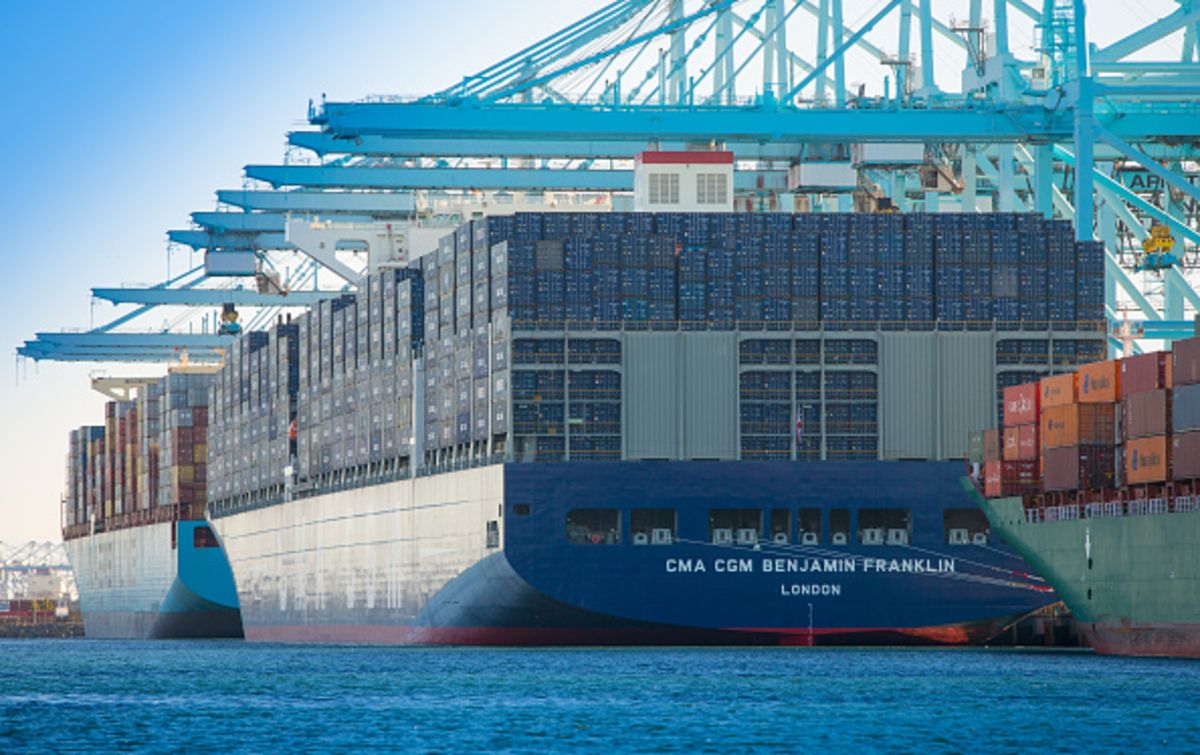The latest report from the National Bureau of Statistics (NBS) in its series on foreign trade, shows that the total value of trade declined by -17.8% y/y to N12trn in Q1 ’23 compared with N14.6trn recorded in Q4 ’22.
This decline can be partly attributed to the slowdown in economic activities in Q1 ‘23 due to the cash crunch associated with the Naira redesign policy.
Meanwhile, on a q/q basis, it grew by +2.5%. The net result was a surplus of N927.2bn. The total export value increased marginally by 1.6% q/q to N6.5trn compared with N6.4trn in Q4 ’22 while the import value increased by 3.8% q/q to N5.6trn from N5.4trn recorded in Q4 ’22. The total trade as a percentage of nominal GDP (2022) stood at 6.0% in Q1 ’23, compared with 5.9% recorded in Q4 ’22.
According to the NBS, most imports in Q1 ’23 originated from China (N1.3trn). This is followed by the Netherlands (N575.2bn), Belgium (N518.1bn), India (N427.4bn), and the United States (N283.9bn). These countries collectively accounted for 55.8% of the total imports in Q1 ’23. Imports from the Economic Community of West African States (ECOWAS) stood at N42.3bn in Q1 ’23, accounting for 23.7% of total imports within the region.
The value of imported oil-related products and agricultural goods increased by 11.5% q/q and 5.9% q/q respectively. Meanwhile the value of imported manufactured products declined by -4.2% q/q.
Regarding export destinations, the top five were Netherlands (N837.6bn), United States (N579.4bn), Spain (N488.2bn), France (N487.3bn) and Indonesia (N456.7bn) was the top exporting partner for Nigeria in Q1 ’23. These countries collectively accounted for 43.9% of total exports in Q1 ’23.
Crude oil accounted for the largest share (79.4%) of total exports in Q1 ’23. On a q/q basis, it grew by 4.1% to N5.1trn vs N4.9trn recorded in the previous quarter. The q/q increase in the value of total crude exported can be partly attributed to improved oil production.
According to the NBS, average crude oil production (condensates inclusive) in Q1 ’23 was recorded at 1.5mbpd vs 1.49mbpd in the previous quarter. We understand that OPEC+ has revised Nigeria’s oil production quota to 1.38mbpd (expected to take effect from January’24) from 1.7mbpd. The FGN’s production benchmark is still pegged at 1.68mbpd.
As for non-oil exports, superior quality cocoa beans, sesamum seeds, cashew nuts in shell, soya beans, other frozen shrimps and prawns, cocoa butter, and sorghum seed featured as the top export commodities in Q1 ’23. Nigeria exported goods worth N399.2bn to fellow members of the ECOWAS in Q1 ’23, compared with N553.8bn in Q4 ‘22. This represented 59.9% of total exports within Africa.
Apapa Port remained the most active port during the period and accounted for 93.6% of total exports. Goods worth N6.1trn exited the country through this port. Other ports widely used within the period include Tincan Island (N199bn), and Port Harcourt (N150bn).
Looking ahead, the importation of refined fuel products is expected to decline with the commencement of operations in the Dangote refinery.
This could lead to additional fx savings from distribution costs (i.e. freight rate, jetty throughput charges, NPA charges, etc.).

 Forex3 weeks ago
Forex3 weeks ago
 Naira3 weeks ago
Naira3 weeks ago
 Billionaire Watch2 weeks ago
Billionaire Watch2 weeks ago


 Naira3 weeks ago
Naira3 weeks ago




 Naira2 weeks ago
Naira2 weeks ago




 Naira1 week ago
Naira1 week ago




 Naira4 weeks ago
Naira4 weeks ago
 Banking Sector4 weeks ago
Banking Sector4 weeks ago






















